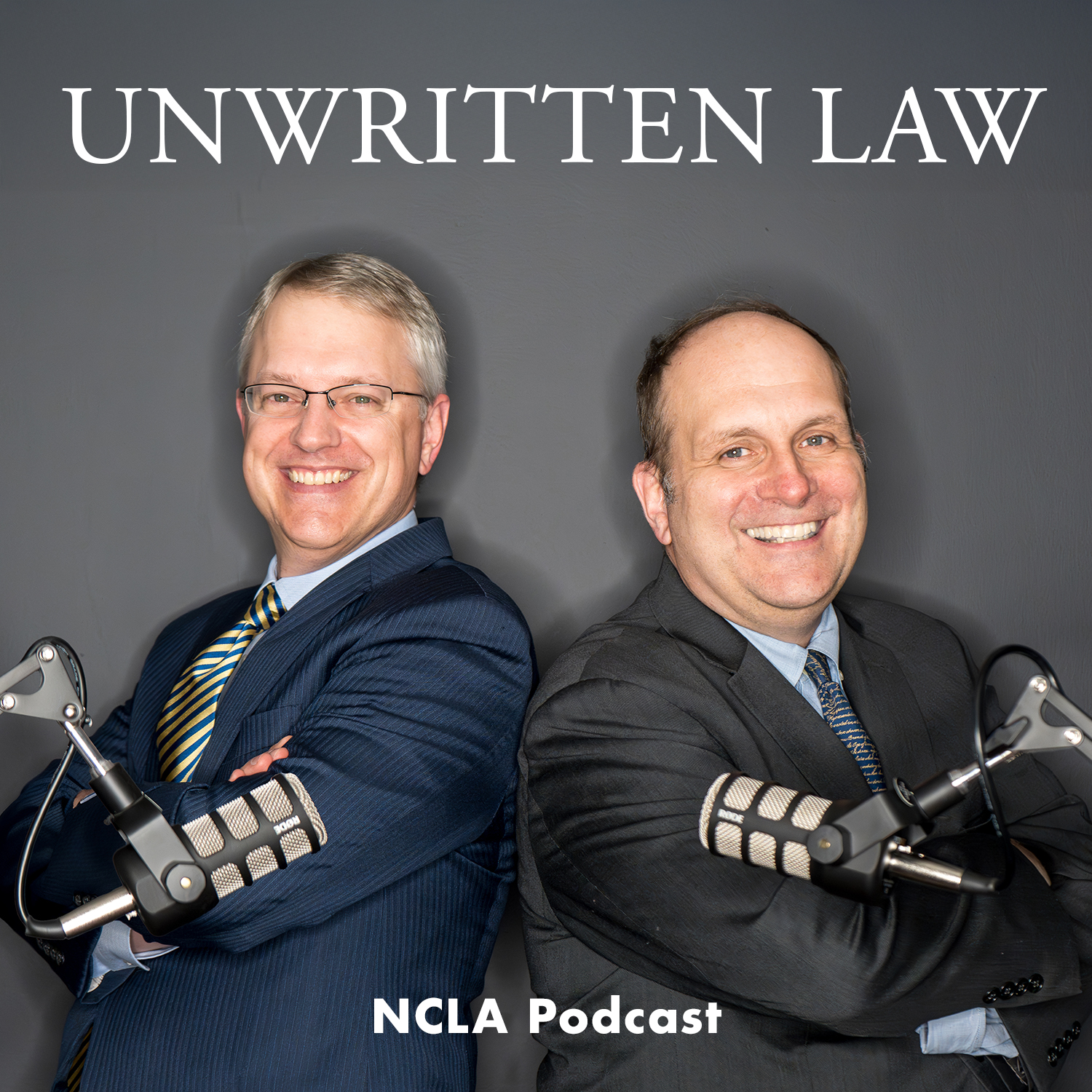Unwritten Law

Unwritten Law
Podcast Description
Unwritten Law is a podcast hosted by Mark Chenoweth and John Vecchione, brought to you by the New Civil Liberties Alliance (NCLA). This show dives deep into the world of unlawful administrative power, exposing how bureaucrats operate outside the bounds of written law through informal guidance, regulatory “dark matter,” and unconstitutional agency overreach.
Podcast Insights
Content Themes
The podcast focuses on topics related to administrative law, constitutional rights, and legal challenges against government overreach. Episodes cover themes such as the constitutionality of vaccine mandates, the IRS's warrantless searches of financial records, and the implications of a case against the National Park Service’s regulations. Specific episode examples include discussions on Health Freedom Defense Fund v. Carvalho, Harper v. IRS, and the implications of Loper Bright and Relentless rulings on agency power.

Unwritten Law is a podcast hosted by Mark Chenoweth and John Vecchione, brought to you by the New Civil Liberties Alliance (NCLA). This show dives deep into the world of unlawful administrative power, exposing how bureaucrats operate outside the bounds of written law through informal guidance, regulatory “dark matter,” and unconstitutional agency overreach.
Chevron deference may be gone—but is the Supreme Court quietly laying the groundwork for something even worse?
In this episode of Unwritten Law, Mark Chenoweth and John Vecchione examine a recent Supreme Court decision that could dramatically reshape administrative law. Drawing on analysis by Will Yeatman, they discuss how the Court’s handling of VanDerStok risks giving agencies a powerful new shield by treating challenges to regulations as “facial” attacks—making them nearly impossible to win.
The conversation dives into why this approach departs from traditional administrative-law principles, how lower courts may use it to avoid meaningful judicial review, and why this decision could become a dangerous tool for future administrations—regardless of political party.
If you care about limits on bureaucratic power, the future of post-Chevron litigation, or the proper role of courts in reviewing agency action, this episode explains why VanDerStok is an issue worth watching closely.

Disclaimer
This podcast’s information is provided for general reference and was obtained from publicly accessible sources. The Podcast Collaborative neither produces nor verifies the content, accuracy, or suitability of this podcast. Views and opinions belong solely to the podcast creators and guests.
For a complete disclaimer, please see our Full Disclaimer on the archive page. The Podcast Collaborative bears no responsibility for the podcast’s themes, language, or overall content. Listener discretion is advised. Read our Terms of Use and Privacy Policy for more details.